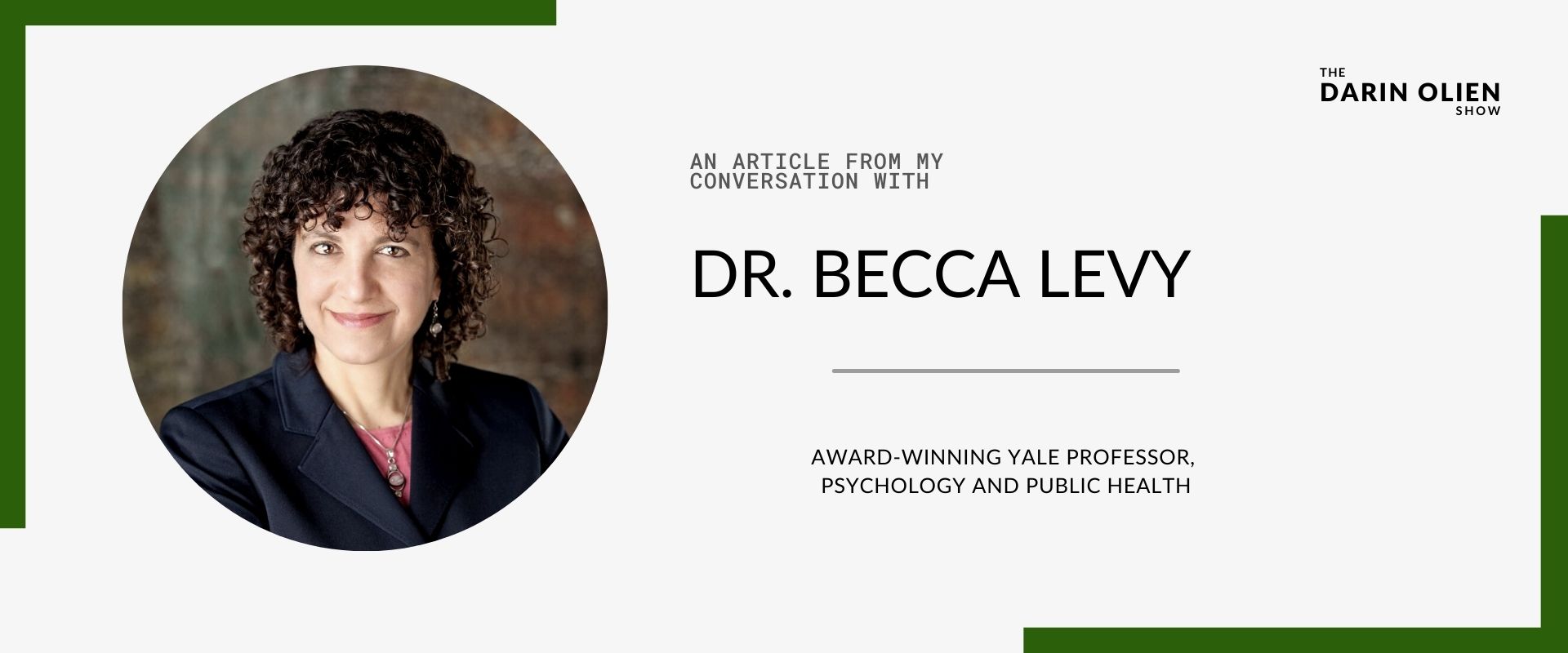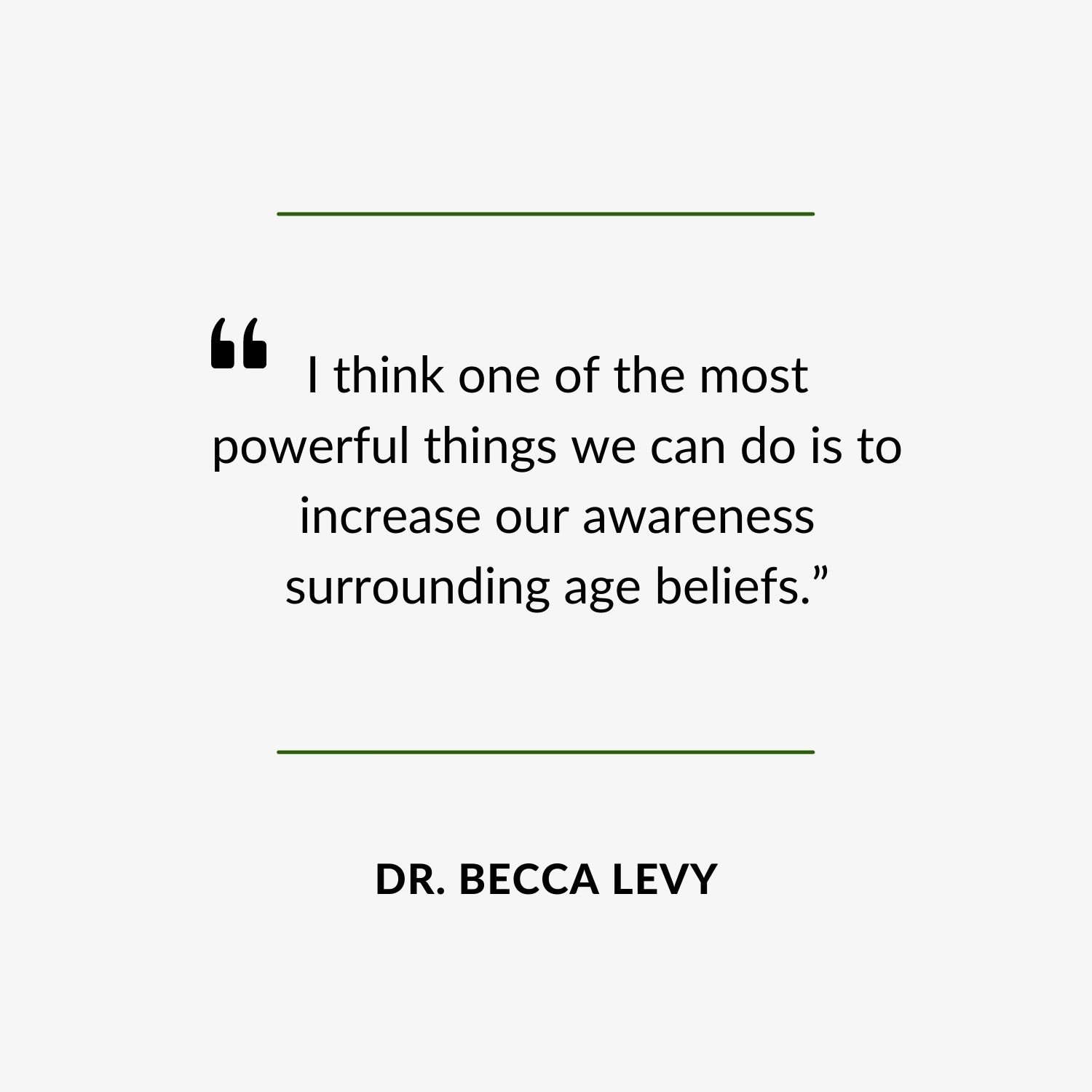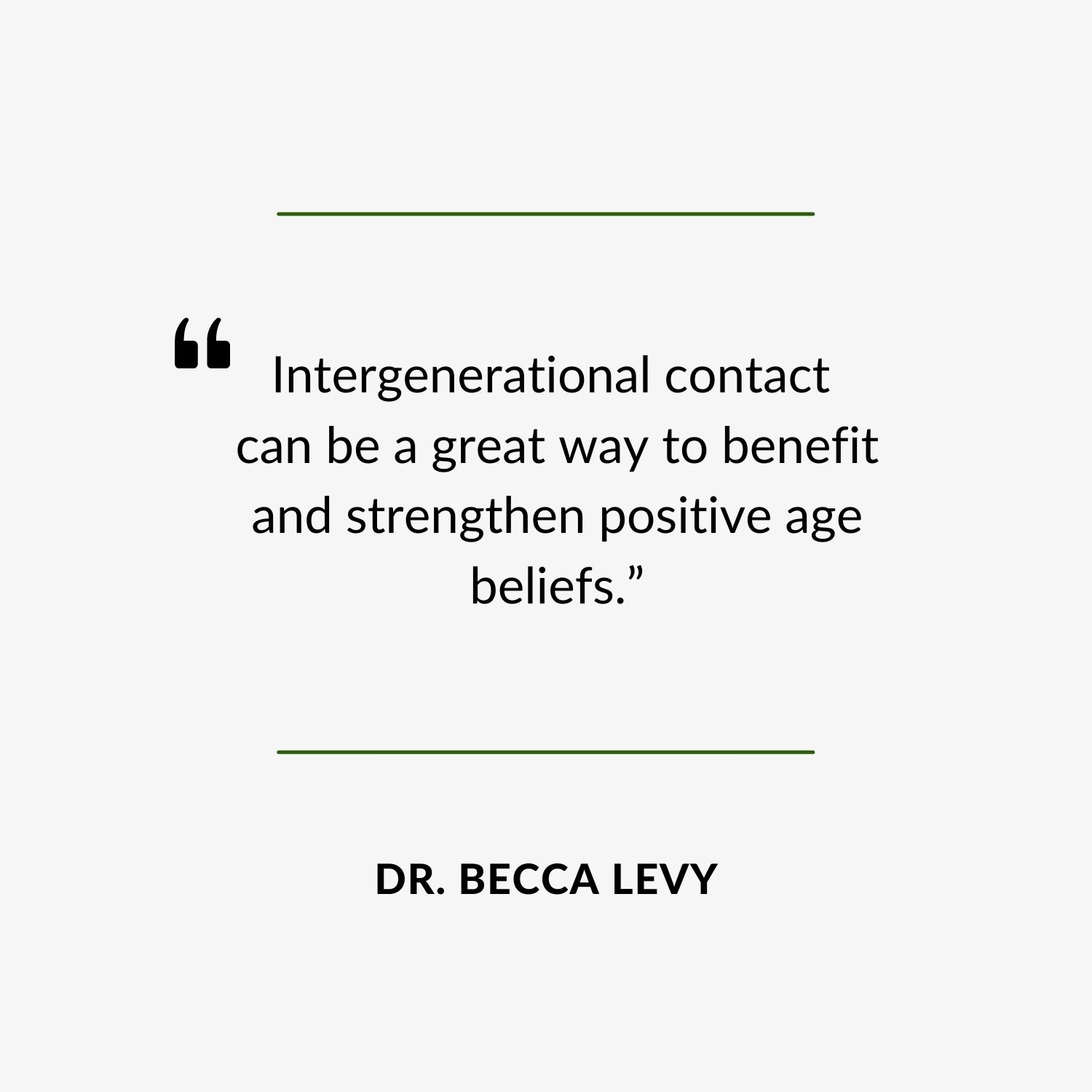19 May How Can We Shift Our Mindset on Aging?

Podcast: Play in new window | Download
Subscribe: RSS
We’re getting older every day. Every morning we wake up, our body has aged since the day before. Some cultures regard this aging process with esteem and cherish it. They treat their elders as wise fixtures in their society, whose knowledge is priceless. But here in our American society, aging is feared, dreaded and used as fodder for pop culture jokes. We spend millions of dollars every year on products to hide our old age, and on supplements and pills to slow down the aging process. We look at our elderly as people past their prime, a nuisance, and a burden on the younger generation tasked with caring for them. The whole thing is backwards. And it’s detrimental to our physical and mental health. How can we shift our mindset towards aging?
Ageism in Modern Society 
On a recent episode of The Darin Olien Show, I had a fascinating conversation with Dr. Becca Levy. Becca is an award-winning Yale Professor of Psychology and Public Health.. She received her doctorate in psychology from Harvard University and held a National Institute on Aging postdoctoral fellowship at Harvard Medical School. Dr. Levy has testified before the United States Senate on the effects of ageism and has even submitted briefs to the US Supreme Court in age-discrimination cases. Her fascinating scientific discoveries help serve as evidence for the World Health Organization Campaign to Combat Ageism.
Becca is credited with creating a field of study focusing on how positive age beliefs can improve the overall quality of life of individuals, as well as how damaging negative age beliefs can be for us all. Her book, Breaking the Age Code: How Your Age Beliefs Determine How Long and Well You Live, dives into our collective misconceptions regarding aging
Dr. Levy is a firm believer, based on her scientific research, that negative age beliefs are detrimental to our health and well-being. “I think one of the most powerful things we can do is to increase our awareness surrounding age beliefs,” she explained. So what are negative age beliefs? Well, take the movies in the Grumpy Old Men series, for instance– or the portrayal of eldery people in TV and movies in general. Older individuals are mostly portrayed as bitter, cranky characters filled with either regret or disdain for everyone around them. Maybe these kinds of stereotypes make us feel better about casting aside our elderly citizens as soon as they hit retirement age.
Elders in Other Cultures
I’ve traveled the planet spending time with indigenous people of all different cultures. And one of the many things they all had in common was how they viewed their elders. The oldest living generation in these cultures are revered and respected. Elders are celebrated in ways that are unheard of in our modern society. They’re seen almost as living gods, a higher class of human, having earned respect through age and experience. Getting older is something to look forward to, something to achieve, not an inevitable fate of death.
So how can we bring some of that elder culture back to the states? Well, Dr. Levy says it starts by simply spending more time with people older than yourself. “Intergenerational contact can be a great way to benefit and strengthen positive age beliefs,” she says. We tend to hang around with people our own age, or close to it. Think about it. Picture your friend group. How old are they? Do you have any friends that are 5 years older than you? 10 years older? 20 or more years older?
In our society, we’re encouraged to be friendly with people our own age, and keep the older generation at arm’s length. Think about how limiting that is! How are we ever going to learn from our friends, if they’ve only experienced the same amount of life as we have? Take this as your sign to befriend older gentlemen at the gym, or your eldery neighbor, or the lady that you see at the dog park every week. Have a little age diversity in your inner circle.
Ageism and Health
Believe it or not, holding negative beliefs towards age is bad for your health. It’s true! Dr. Levy’s work has brought her to the conclusion that not only is ageism bad for older individuals, it’s bad for the people that hold onto that negatively. Regarding aging negatively not only impacts your mental health, but your physical health as well. “People that have positive age beliefs have a lower risk of developing dementia,” Dr. Levy told me. And not only that– people with positive age beliefs have a lower risk of developing a wide range of health problems like heart disease and stroke.
While this may seem mind blowing, it’s really not if you think about it. If you are constantly thinking that aging leads to disease, loneliness and inevitably death, then why wouldn’t it happen that way? Holding on to those negative age beliefs only help perpetuate them in the long run.
Let’s all shift our mindset towards aging. Getting older is a beautiful thing, and we should regard our elders as such. As we get older, we are filled with more knowledge, more experience, more love– not the other way around.
To read more on Dr. Levy’s fascinating research on aging,
listen to her episode of The Darin Olien Show.
Podcast: Play in new window | Download
Subscribe: RSS



Sorry, the comment form is closed at this time.